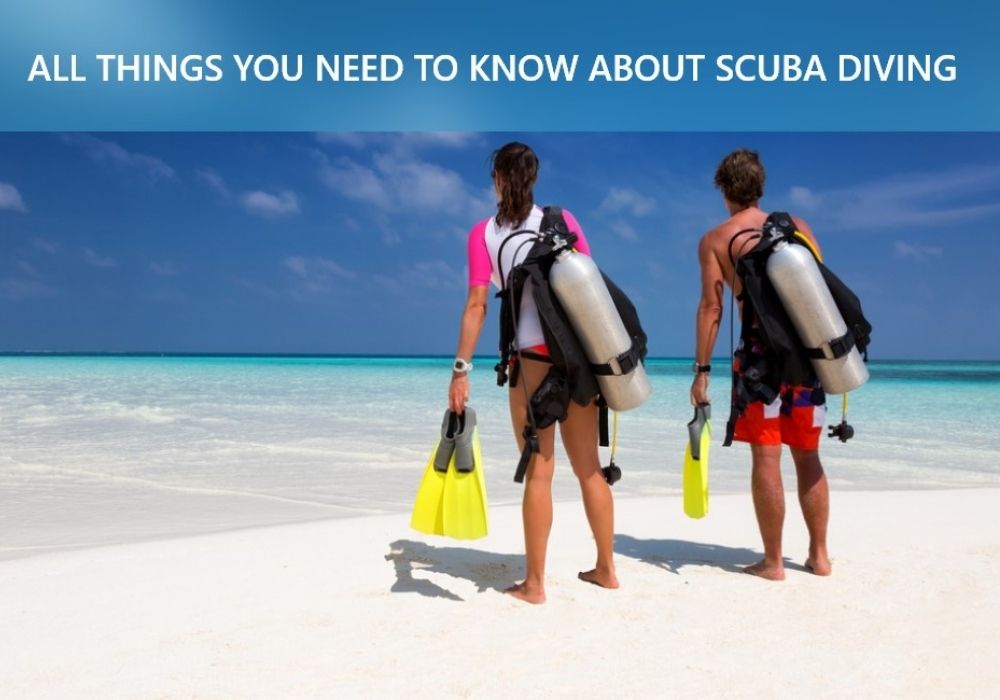Blog
All Things You Need to Know About Scuba Diving
Learning how to scuba dive can be a fun and exciting experience. Scuba diving allows you to explore the underwater world in a safe and controlled environment. Plus, it gives you the chance to see marine life up close and personal. But before you sign up for a scuba diving class, you should know a few things about this popular sport.
What Is Scuba Diving?
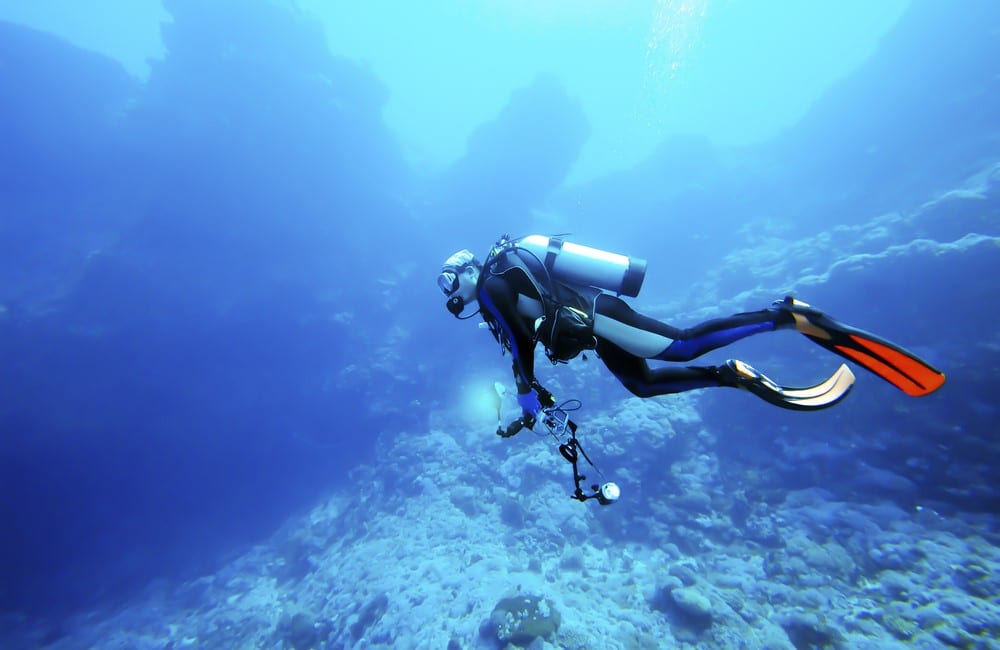
Scuba diving is an activity in which people use diving equipment to breathe underwater. Scuba diving is often done for recreational purposes, but it can also be done for work or other activities. For example, some people use scuba diving gear to clean swimming pools or to inspect bridges and dams. There are several different types of diving equipment, but all of them allow the diver to breathe underwater for extended periods of time.
Some of the most popular types of scuba diving equipment include Full Face Masks, Rebreathers, and Dive Computers. Scuba diving is a relatively safe activity, but some risks are involved. These risks can be minimized by following the proper safety procedures and using the correct type of gear for the job.
Who Can Scuba Dive?
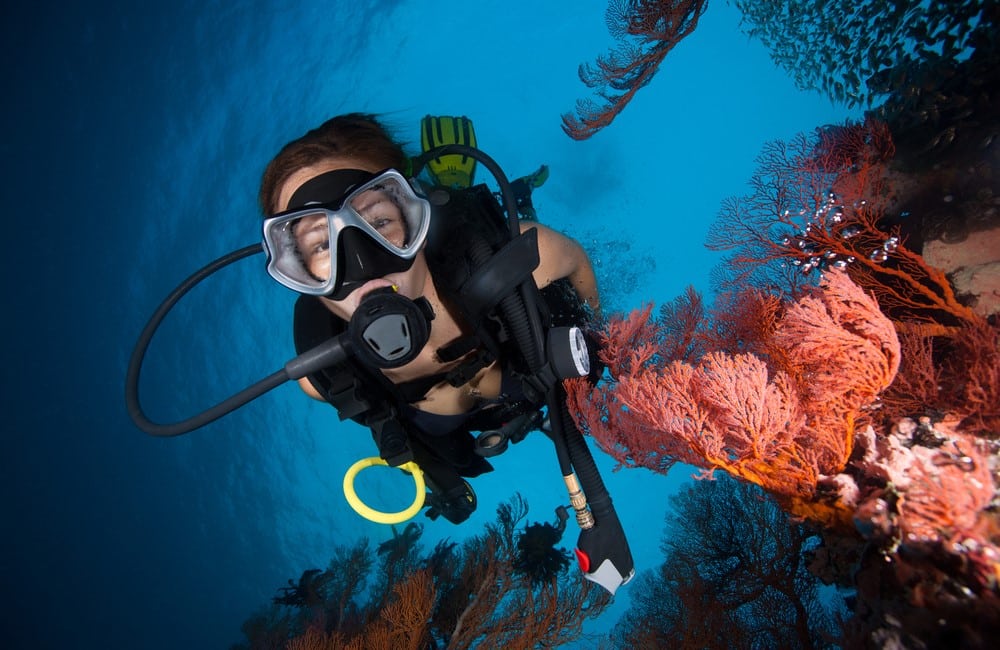
Scuba diving is a popular activity that allows people to explore the underwater world. But who can scuba dive? In general, anyone in good physical health and comfortable in the water can scuba dive.
There are, however, a few other requirements that must be met before someone can start diving. For example, all scuba divers must be at least 10 years old. They also need to be able to swim 200 yards without stopping, as well as a float for 10 minutes without using any swimming aids.
In addition, scuba divers must be able to pass a basic swimming test and a brief medical exam. Once these requirements are met, anyone can start exploring the wonders of the underwater world.
Is Scuba Diving Safe?
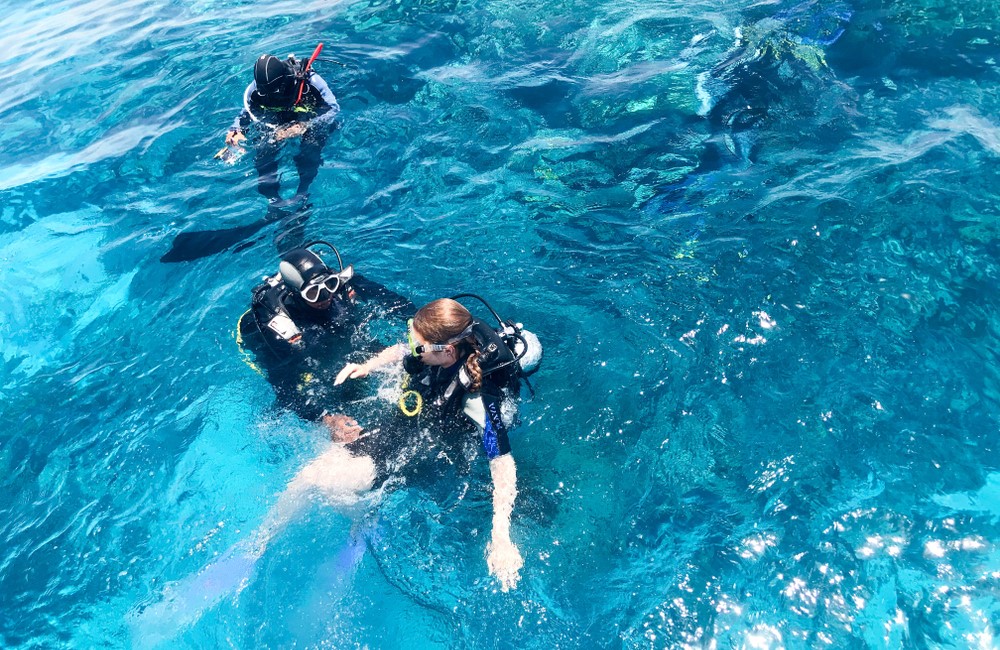
One of the most common misconceptions about scuba diving is that it is an extremely dangerous activity. This simply is not true. Scuba diving is safe when done properly. In fact, studies have shown that scuba diving is actually safer than many other popular sports, such as basketball and football.
Of course, risks are always involved in any activity, but as long as you follow the proper safety procedures, scuba diving is no more dangerous than any other sport.
What Equipment Is Used for Scuba Diving?
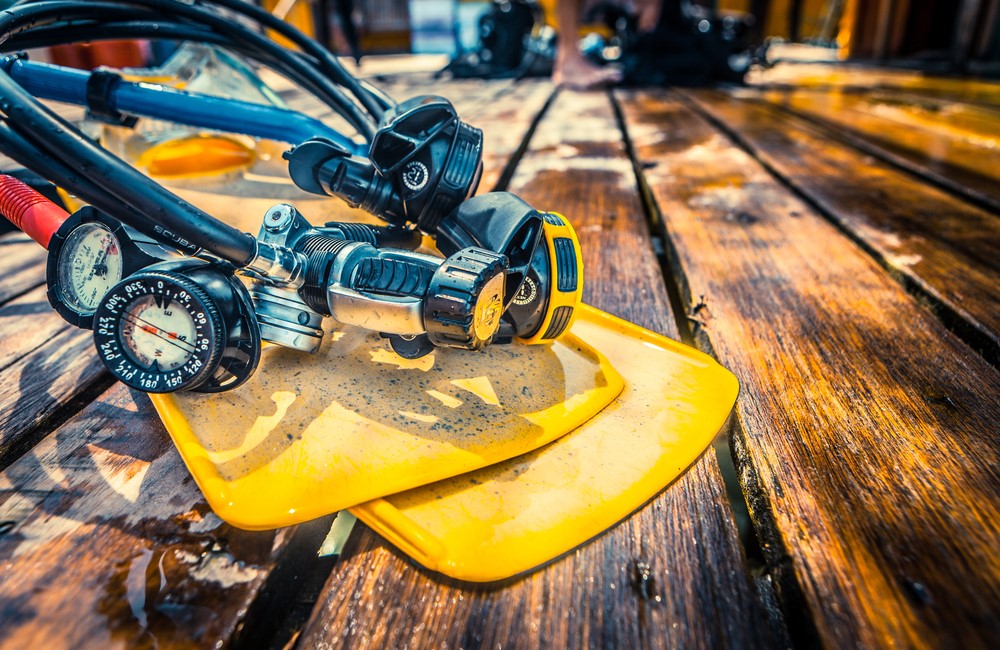
Scuba diving is a form of submerged diving where the diver uses a self-controlled submerged breathing device (SCUBA) to respire. This allows the diver to stay underwater for extended periods of time without needing to surface for air.
There are two main types of SCUBA equipment: open–circuit and closed–circuit. Open-circuit SCUBA systems provide the diver with fresh air from a tank that is carried on their back. The air is then exhaled into the water. Closed-circuit SCUBA systems recycle the air exhaled by the diver, allowing them to stay underwater for even longer periods.
In addition to a SCUBA system, divers also need a face mask to see underwater, fins to help them swim, and a wet suit or dry suit to keep them warm.
Do You Need A Certification to Scuba Dive?
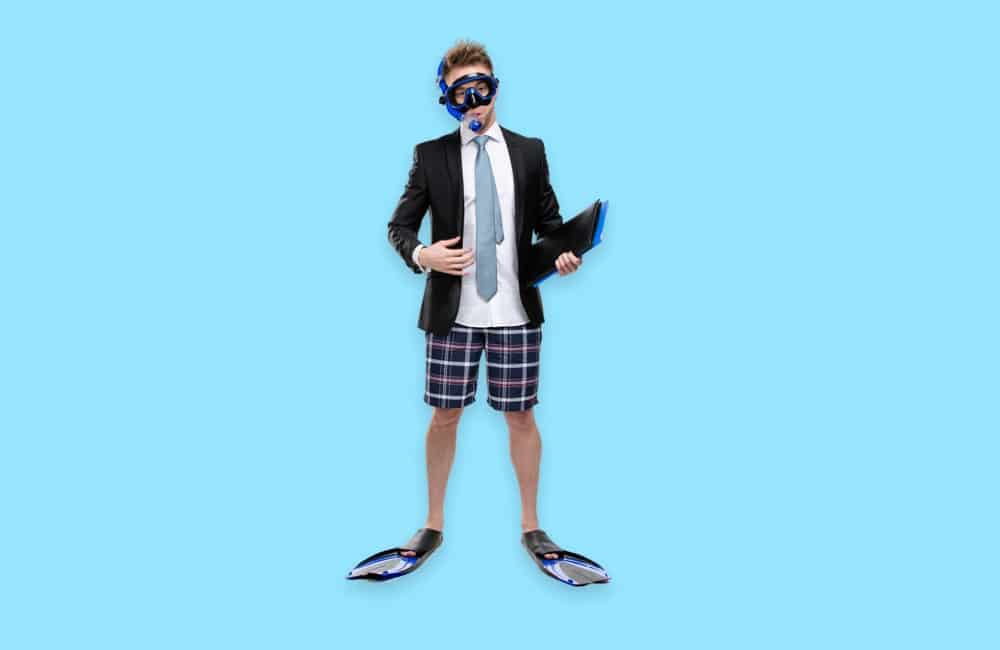
Many people dream of scuba diving in tropical waters, exploring coral reefs, and encountering fascinating marine life. However, before you can dive, you need to obtain a certification. While some people may be hesitant to get certified, it is actually a fairly straightforward process. Scuba diving certification is designed to ensure that divers have the basic knowledge and skills needed to dive safely.
The certification process usually involves a combination of classroom learning and in-water training. Once you have completed the certification program, you will be able to dive with confidence, knowing that you have the skills and knowledge necessary to keep yourself safe underwater.
How to Get A Scuba Diving Certification?
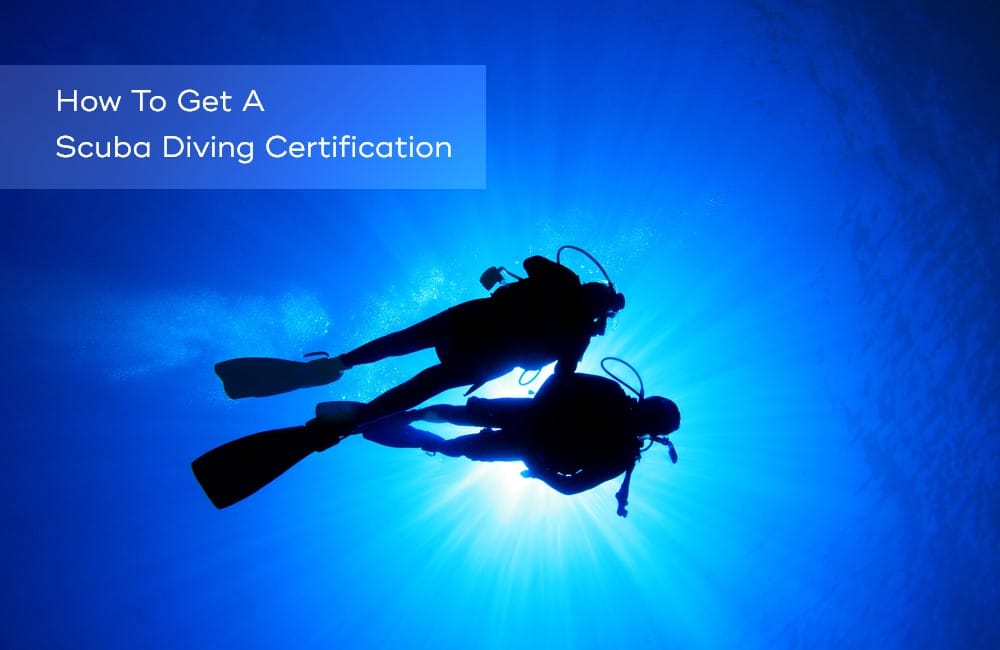
In order to scuba dive, individuals must first obtain a scuba diving certification. Scuba diving certification can be obtained through various scuba diving schools or certification organizations. The process of getting certified typically involves taking a class, passing a written exam, and completing a water skills test.
Once an individual has obtained a scuba diving certification, they will be able to rent or purchase scuba diving gear and participate in scuba diving trips. Additionally, with a scuba diving certification, the underwater world will be open for exploration.
Tips for Staying Safe while Scuba Diving
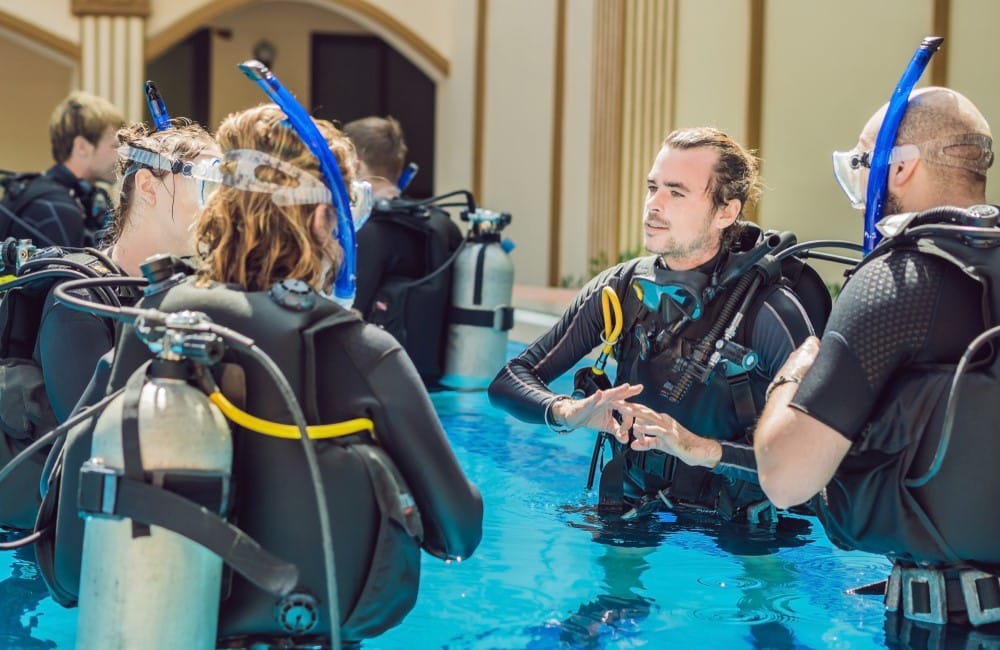
Scuba diving is an exciting way to explore the underwater world, but it is also important to be aware of the risks involved. Here are some tips to help you stay safe while scuba diving:
- First, ensure you are properly trained and certified before diving.
- Second, be aware of your surroundings, and never dive alone.
- Third, be cautious of currents and only dive into areas that are within your skill level.
- Fourth, pay attention to your air gauge and always have a backups plan in case you run out of air.
- Fourth, make sure you are familiar with your equipment and that it is well-maintained.
- And finally, always heed the dive master’s instructions.
By following these simple safety tips, you can help ensure that your next scuba diving adventure is a safe and enjoyable one.
How to Get Started with Scuba Diving?
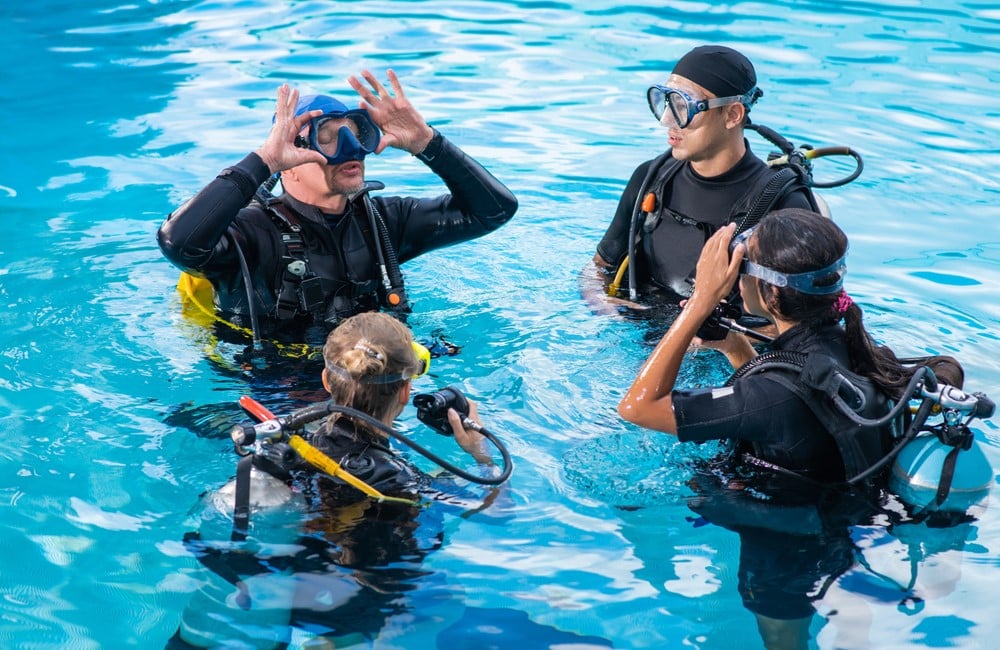
Scuba diving is an exciting way to explore the underwater world and a great way to get some exercise. If you’re thinking about taking up scuba diving, there are a few things you need to know before getting started.
Firstly, you’ll need to be in good physical shape and able to swim. Secondly, you’ll need to be comfortable with diving equipment, including the dive mask, fins, and snorkel. Finally, you’ll need to complete a certified scuba diving course. Once you’ve completed these steps, you’ll be ready to start scuba diving!
Choose a Scuba Diving Course
Scuba diving is a great way to see the underwater world without having to hold your breath. However, scuba diving is not without its risks. To ensure your safety, it is important to choose a scuba diving course that is right for you.
There are many scuba diving courses available, from beginner to advanced levels. If you are a first-time scuba diver, choosing a course that will give you the basic skills and knowledge you need to dive safely is important. Many beginner courses also include a shallow water dive, so you can get a feel for what it is like to be underwater before you venture too deep.
Once you have completed a beginner course, you may want to consider taking an advanced course. Advanced courses offer the opportunity to learn more about diving techniques and safety procedures. They also allow you to explore different types of diving, such as night diving or wreck diving.
Whatever level of scuba diving course you choose, make sure that a reputable organization accredits it. This will ensure that you receive quality instruction from experienced instructors. You can enjoy the underwater world safely and confidently with the right training.
Buy or Rent Dive Gear
When exploring the underwater world, high-quality scuba diving gear must be used to fit well and work properly. But as a beginner, should you buy or rent dive gear?
There are a few things to consider when making this decision. First, think about how often you will be diving. If you only plan to dive a few times a year, then renting gear is probably the best option. Not only is it more economical, but it also means that you won’t have to worry about storing and maintaining your own gear.
On the other hand, buying your own gear may be a better investment if you plan on diving more frequently. Not only will you have the peace of mind of knowing that your gear is well-maintained, but you will also be able to get a better fit. This is especially important if you have any special considerations, such as allergies or injuries.
Ultimately, the decision of whether to buy or rent dive gear depends on your individual needs and preferences. But no matter what you decide, always make safety your top priority.
Enrol in a Scuba Diving Course
Are you looking for an exciting way to explore the underwater world? If so, enrolling in a scuba diving course is a great option. Scuba diving is a type of underwater diving that uses special equipment to allow the diver to breathe while submerged.
While it may seem like a complicated activity, scuba diving is actually surprisingly easy to learn. With a little practice, anyone can enjoy the underwater world’s breathtaking beauty in no time. In addition to being fun and exhilarating, scuba diving can also be very educational.
Divers have the opportunity to see firsthand the amazing diversity of marine life and better understand the delicate balance between humans and the natural world. So, whether you’re looking for adventure or education, enrolling in a scuba diving course is an excellent choice.
Learn Essential Dive Theory
Scuba diving is a relatively safe sport, but some risks are still involved. That’s why it’s important to learn essential dive theory before you take the plunge. By understanding how diving works and what to expect underwater, you can help to minimize the risks and ensure a fun and safe diving experience.
Some of the key topics covered in dive theory include an introduction to diving physics, an overview of scuba gear, how to descend and ascend safely, dive planning and gas management, underwater communication; dealing with emergencies; and awareness of the local environment.
Dive theory is usually taught through a combination of classroom-based learning and practical training in a pool or open water. Once you have completed a course in dive theory, you will be better prepared to start exploring the underwater world.
Practice Simple Skills with an Instructor
Many people dream of scuba diving in tropical waters, exploring sunken shipwrecks, and encountering colorful fish. However, before you can jump into the water, you need to learn a few simple skills. The best way to learn these skills is by working with a certified scuba instructor. A certified instructor will be able to give you personalized attention and ensure that you are comfortable with all the necessary skills before you venture into open water. They will also be able to answer any questions that you may have. So, if you’re interested in scuba diving, be sure to find a certified instructor and practice the simple skills that are necessary for a safe and enjoyable experience.
Go on Your First Dive
After successfully completing a beginner’s class, you’ll be ready to go on your first dive.
When planning your first dive, it’s important to choose a location that is suitable for beginners. Generally speaking, avoiding areas with strong currents or dangerous wildlife is best.
Once you’ve selected a location, be sure to check the weather conditions in advance – if the forecast calls for high winds or waves, it’s best to reschedule your dive for another day. Finally, remember that safety is paramount when scuba diving.
Be sure to follow all of your instructor’s safety guidelines, and if you ever feel unsafe or uncomfortable underwater, don’t hesitate to end the dive early. With a little preparation and common sense, scuba diving can be an enjoyable and safe activity for everyone involved.
You Don’t Need to Be A Strong Swimmer to Scuba Dive
Another common misconception about scuba diving is that you need to be a strong swimmer in order to do it. This is not true either. While it helps to be a strong swimmer, you do not need to be an Olympic-calibre swimmer to scuba dive safely. As long as you are comfortable in the water and can swim confidently, you will be able to scuba dive without any problems.
Scuba Diving Is Not Expensive
Yet another common misconception about scuba diving is that it is an expensive sport. While some costs are associated with scuba diving, it does not have to be an expensive hobby. You can often find used equipment for sale at a fraction of the cost of new equipment.
Additionally, many dive centers offer discounts for multi-day dives or for referrals. So, if you are interested in taking up scuba diving, don’t let the cost deter you; it’s affordable for almost everyone.
Conclusion
Scuba diving is a popular sport with many benefits; it’s safe, not expensive, and anyone can do it (you don’t need to be a strong swimmer). So if you’re thinking about taking up scuba diving, just follow the basic steps to learn it while considering safety precautions, and don’t let anything stop you; it’s an experience you’ll never forget!
